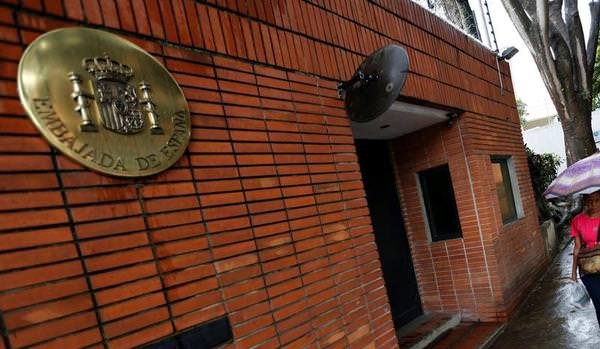HOW DO YOU VOTE OUT AN AMBASSADOR?
The Government of Venezuela has ordered the expulsion of the Spanish ambassador, Jesus Silva, from the country.

The government of Venezuela has decided to expel the Spanish ambassador Jesus Silva and it is presumable that our nation will do the same with the Venezuelan in the next few days. The diplomatic crises between the two countries thus reached their peak. But, apart from the specific case, what steps are taken before making that decision?
When conflicts of some kind arise between two nations, it is quite common for one of them to summon the ambassador of the other to convey their grievances. This is something that happens quite often around the world, as it is the usual procedure for governments in each country to communicate their discomfort at a particular action or policy.
In most cases, the problem is no longer a problem and ends up being solved in some way. But if the escalation of tension continues on the rise, the state that is considered offended may order the expulsion of some officials from the other nation as a warning measure.
If there is still no agreement between the two sides, that state can decide to expel the ambassador from the other nation. To do so, he first calls on his own ambassador in that country. Officially, the purpose of this procedure is to look for possible alternative solutions before making the final decision. Although there are cases in which it is done by pure procedure.
The Vienna Convention on Diplomatic Relations, which has been in force since 1961 in almost all the countries that are part of the UN, allows a nation to declare the ambassador or any official of a foreign legation persona non grata. You can do this for tangible reasons, such as violating national laws or spying. or simply as a symbolic measure of protest. In any case, such legislation allows the nation making such a decision not to have to explain its reasons.
That is when, in accordance with that treaty, the expulsion of the foreign ambassador, who is declared persona non grata, is formally decreed. And it's customary to give him 72 hours to leave the country. Taking that step is a serious crisis, but it does not imply a complete breakdown of diplomatic relations between the two nations. In fact, the embassy concerned remains generally open, although with very small staff and a lower ranking official in charge. However, their functions are confined solely to providing support to nationals of their nationality in that country.